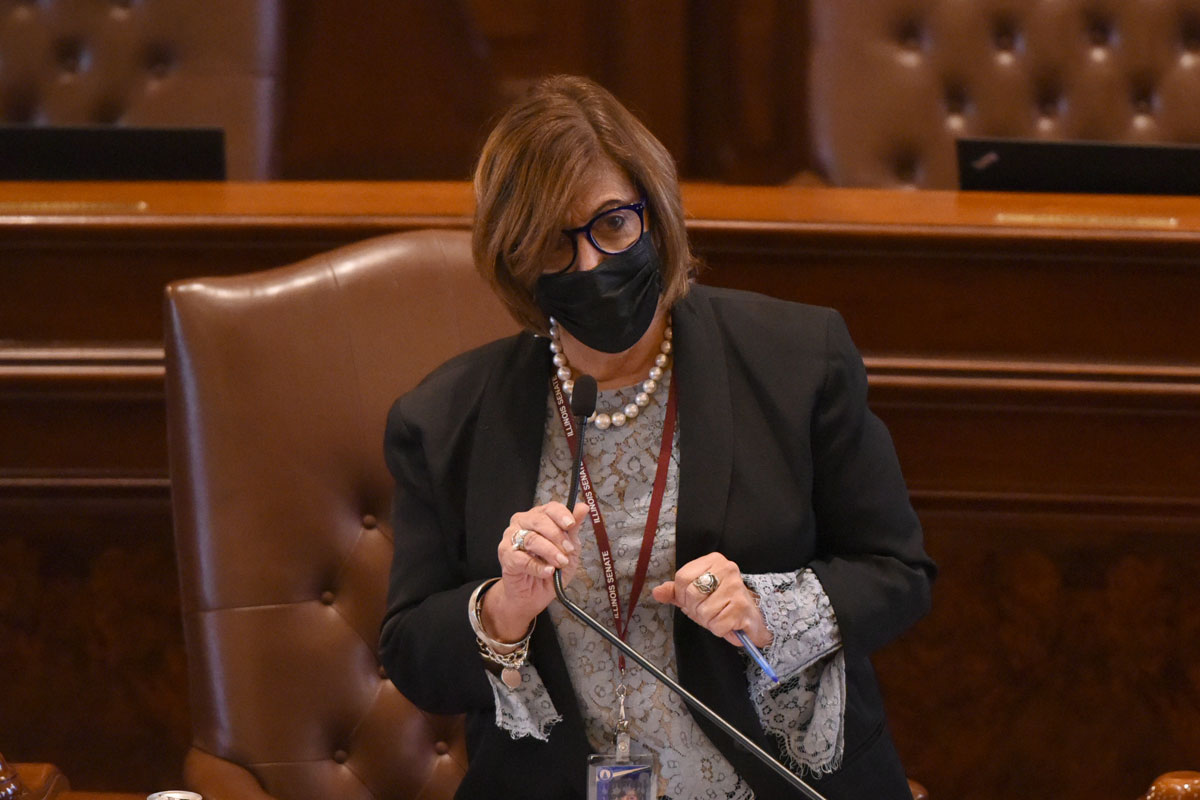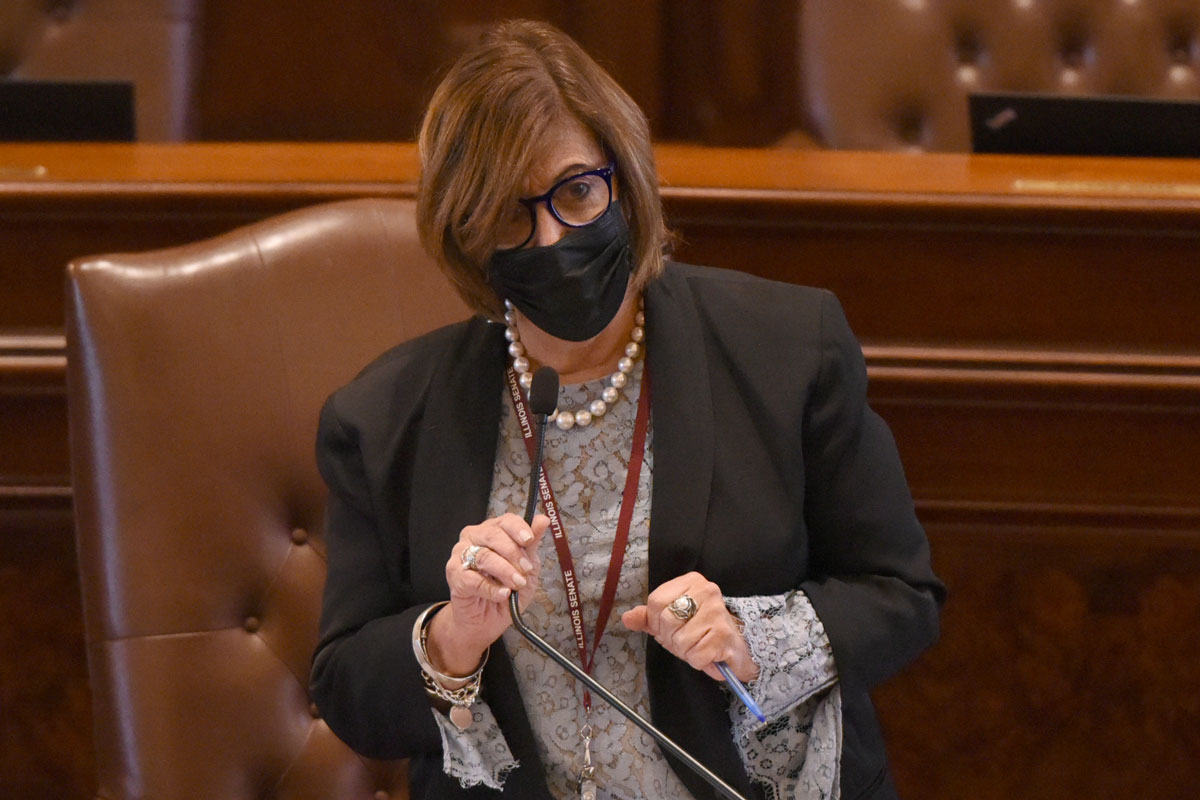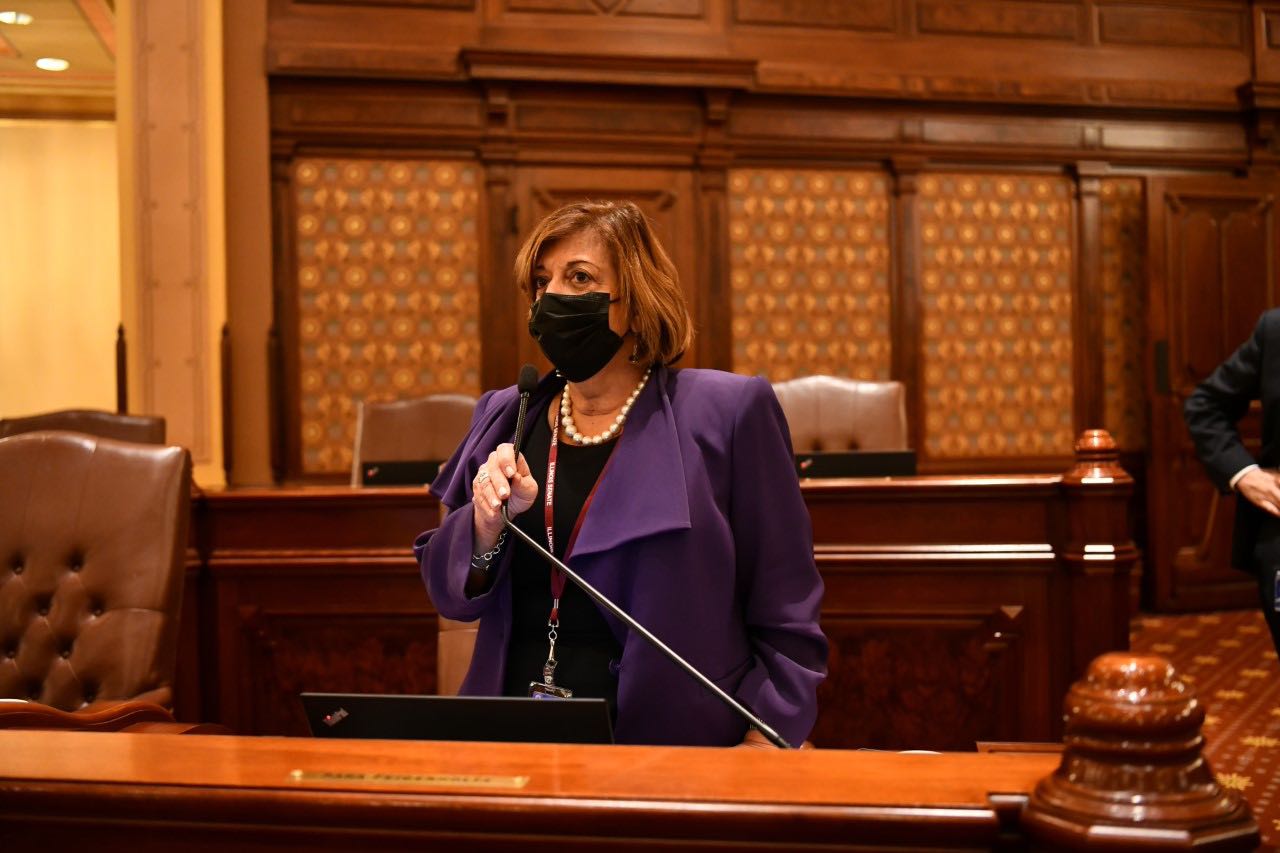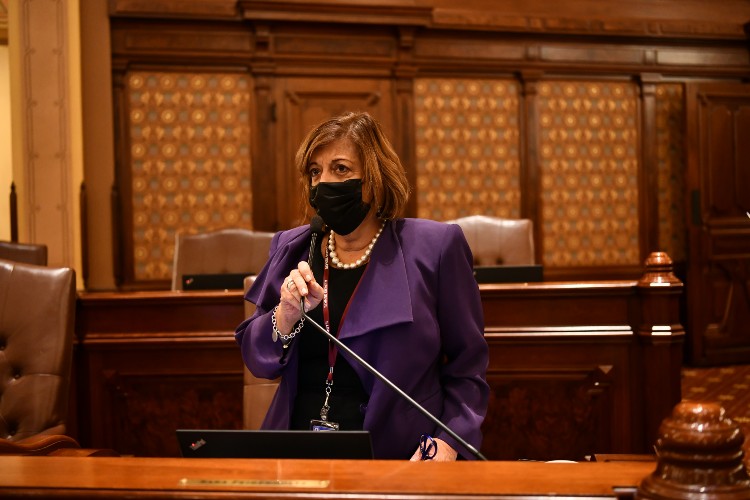- Details
- Category: Senator Sara Feigenholtz News
 SPRINGFIELD – A hospitality package sponsored by Senator Sara Feigenholtz that seeks to provide immediate relief and help manage cash flow for struggling bars and restaurants passed out of the Senate Tourism and Hospitality committee.
SPRINGFIELD – A hospitality package sponsored by Senator Sara Feigenholtz that seeks to provide immediate relief and help manage cash flow for struggling bars and restaurants passed out of the Senate Tourism and Hospitality committee.
“Every day, another restaurant and bar closes its doors,” Feigenholtz said. “Any lever we can pull to keep cash flowing and doors open for our independent restaurants and bars must be a priority. I am eager to see this legislation make its way through the Senate so we can provide immediate relief to our struggling hospitality industry.”
Read more: Feigenholtz measure would help struggling hospitality industry
- Details
- Category: Senator Sara Feigenholtz News
 SPRINGFIELD – With Illinois small businesses still reeling from COVID-19’s economic impact, State Senator Sara Feigenholtz (D-Chicago) is sponsoring a measure that will permit local municipalities to use TIF funding to help struggling businesses.
SPRINGFIELD – With Illinois small businesses still reeling from COVID-19’s economic impact, State Senator Sara Feigenholtz (D-Chicago) is sponsoring a measure that will permit local municipalities to use TIF funding to help struggling businesses.
“Every day, we see another small business closing its doors,” Feigenholtz said. “This bill provides local government with one more lever to keep independent small businesses alive.”
- Details
- Category: Senator Sara Feigenholtz News
 SPRINGFIELD – A measure sponsored by State Senator Sara Feigenholtz (D-Chicago) would further streamline the state’s adoption process while removing redundancies and red tape.
SPRINGFIELD – A measure sponsored by State Senator Sara Feigenholtz (D-Chicago) would further streamline the state’s adoption process while removing redundancies and red tape.
“Reaching the final steps of the adoption process is a wonderful experience, but the final steps can be confusing and laden with red tape,” said Feigenholtz, who is herself an adoptee. “In an effort to make a challenging process less so, this bill fine tunes and clarifies some issues that often arise while finalizing an adoption.”
Read more: Feigenholtz plan cuts red tape from adoption process
- Details
- Category: Senator Sara Feigenholtz News
Industry leaders looking for green light to safely kick-start industry
 CHICAGO – The first hearing of the Senate Tourism and Hospitality Committee, chaired by Sen. Sara Feigenholtz (D-Chicago), convened earlier today to discuss an industry that has been hit the hardest by the COVID-19 pandemic.
CHICAGO – The first hearing of the Senate Tourism and Hospitality Committee, chaired by Sen. Sara Feigenholtz (D-Chicago), convened earlier today to discuss an industry that has been hit the hardest by the COVID-19 pandemic.
“The hospitality and tourism sector generates nearly a million jobs among hotels, restaurants, cultural institutions, and supporting industries, and over 60% of those employed are from disproportionately impacted areas,” said Feigenholtz. “These jobs have been decimated due to the pandemic, and our focus needs to be on establishing a coordinated path and predictable plan to get this industry open and moving.”
Read more: Feigenholtz holds Senate’s first Tourism & Hospitality Committee hearing
- Details
- Category: Senator Sara Feigenholtz News
 SPRINGFIELD – State Senator Sara Feigenholtz (D-Chicago) will chair the first hearing of the Senate Tourism and Hospitality Committee at 10 a.m. Thursday morning.
SPRINGFIELD – State Senator Sara Feigenholtz (D-Chicago) will chair the first hearing of the Senate Tourism and Hospitality Committee at 10 a.m. Thursday morning.
The hearing will cover the strategic plan for COVID-19 recovery and relief in the hospitality industry and will feature testimony from representatives of various areas of the industry, including Sam Toia, President and CEO of the Illinois Restaurant Association; Michael Jacobson, President and CEO of the Illinois Hotel and Lodging Association; Jayne Deluce from the Champaign County Visitors Bureau; and Cara Bader, representing the Department of Commerce and Economic Opportunity.
Read more: Tourism and Hospitality Committee to hold hearing discussing COVID relief plan
- Details
- Category: Senator Sara Feigenholtz News
 CHICAGO – State Senators Sara Feigenholtz (D-Chicago), Robert Martwick (D-Chicago) and Robert Peters (D-Chicago) and State Representatives Ann Williams (D-Chicago) and Margaret Croke (D-Chicago) are hosting a town hall to discuss House Bill 3653, the criminal justice package that was passed earlier this month.
CHICAGO – State Senators Sara Feigenholtz (D-Chicago), Robert Martwick (D-Chicago) and Robert Peters (D-Chicago) and State Representatives Ann Williams (D-Chicago) and Margaret Croke (D-Chicago) are hosting a town hall to discuss House Bill 3653, the criminal justice package that was passed earlier this month.
“Fact vs. Fiction: What the Criminal Justice Bill Does and Doesn’t Do” will feature three panelists who will discuss some myths circulating about the bill in an attempt to clear up some of the misinformation that is being spread.
The town hall will take place virtually via Zoom at noon on Tues., Feb. 2, and will last approximately one hour. Residents are encouraged to submit questions.
RSVP is required, but there is no limit to the number of spots. The Zoom link will be sent the morning of the event to those who have RSVP’d. To RSVP and submit a question or comment, click here.
WHO: State Sen. Sara Feigenholtz (host)
State Sen. Robert Martwick (host)
State Sen. Robert Peters (host)
State Rep. Ann Williams (host)
State Rep. Margaret Croke (host)
State Sen. Elgie Sims (panelist)
States Attorney Eric Reinhart (panelist)
Director Sean Smoot, Council for the Police Benevolent & Protective Association (panelist)
WHAT: Town hall on House Bill 3653, the criminal justice package
WHEN: Tues., Feb. 2, 2021 from 12 p.m. to 1 p.m.
WHERE: Virtual via Zoom (link to be provided morning of event)
- Details
- Category: Senator Sara Feigenholtz News
 CHICAGO – Today marks one year since State Senator Sara Feigenholtz (D-Chicago) began serving in the Illinois Senate. Feigenholtz, who was previously the state representative for the 12th District, took time to reflect on her new role in her first year as senator for the 6th District.
CHICAGO – Today marks one year since State Senator Sara Feigenholtz (D-Chicago) began serving in the Illinois Senate. Feigenholtz, who was previously the state representative for the 12th District, took time to reflect on her new role in her first year as senator for the 6th District.
“Because of this global pandemic, my first year in the Senate was unforgettable, and I am grateful for the opportunity to represent this resilient district,” Feigenholtz said. “In a year that was dominated by COVID-19, I am very proud of the work my district office staff was able to accomplish in meeting the needs of our community. Hundreds of unemployment cases were brought to resolution because of their diligence and commitment to our constituents.”
Read more: Feigenholtz reflects on first year in the state senate
- Details
- Category: Senator Sara Feigenholtz News
 CHICAGO – With the COVID-19 vaccine rollout underway, State Senator Sara Feigenholtz (D-Chicago) joined State Representative Ann Williams (D-Chicago), Cook County Commissioner Bridget Degnen and Cook County Commissioner Donna Miller for a town hall to answer questions.
CHICAGO – With the COVID-19 vaccine rollout underway, State Senator Sara Feigenholtz (D-Chicago) joined State Representative Ann Williams (D-Chicago), Cook County Commissioner Bridget Degnen and Cook County Commissioner Donna Miller for a town hall to answer questions.
“Our constituents have been calling worried they will be overlooked as the vaccine becomes more available,” Feigenholtz said. “This town hall was designed to share specific details from on-the-ground local officials, and those who attended got answers to the many questions our offices have been receiving as to when they will receive their vaccination.” “It’s important we share as much information as possible with our constituents about the vaccine rollout,” Williams added. “Our local public health departments are working day and night to ensure everyone is vaccinated as soon as possible.”
More Articles …
Page 11 of 13













 © 2026 Illinois Senate Democratic Caucus
© 2026 Illinois Senate Democratic Caucus